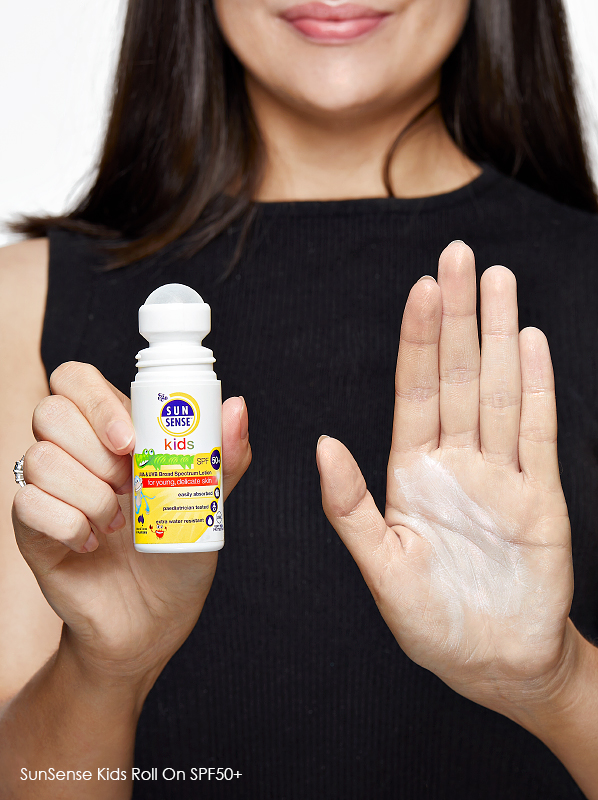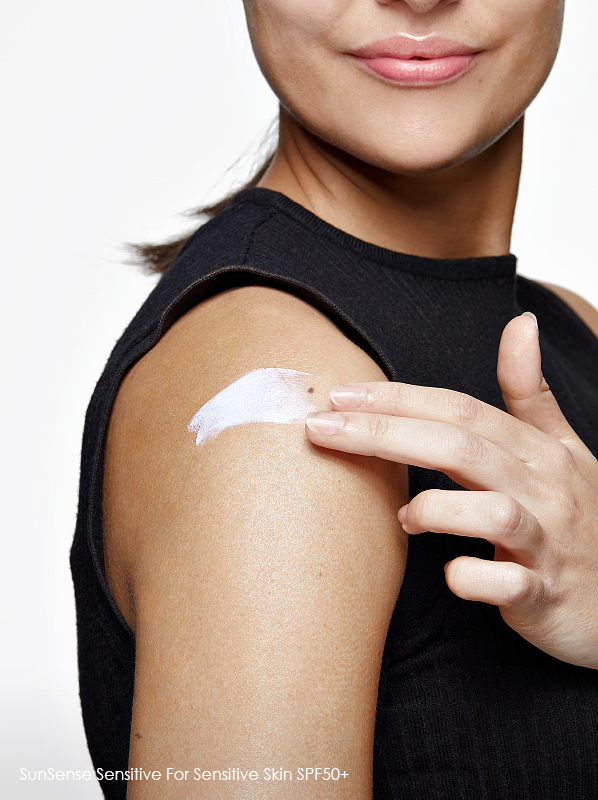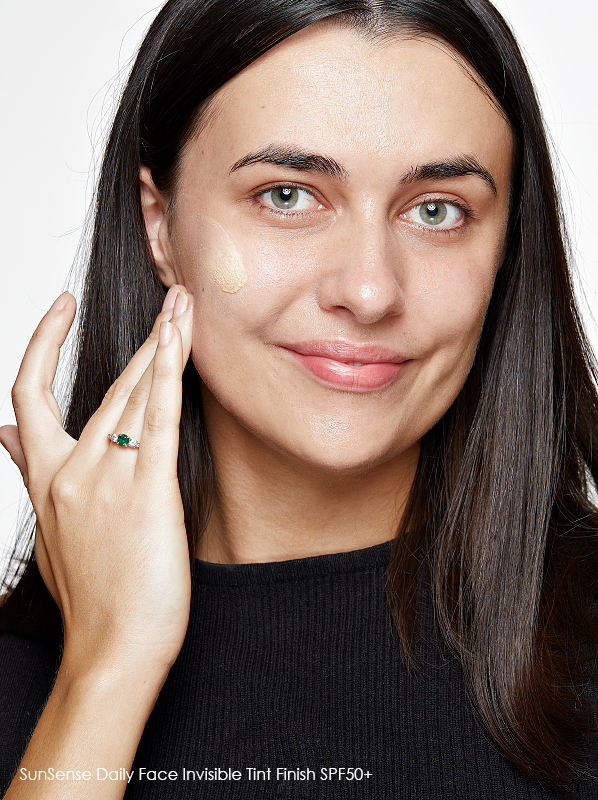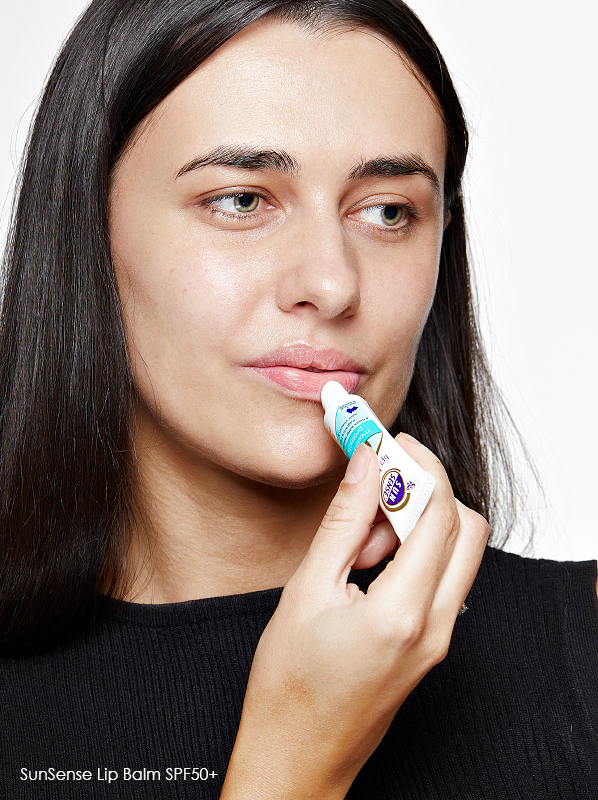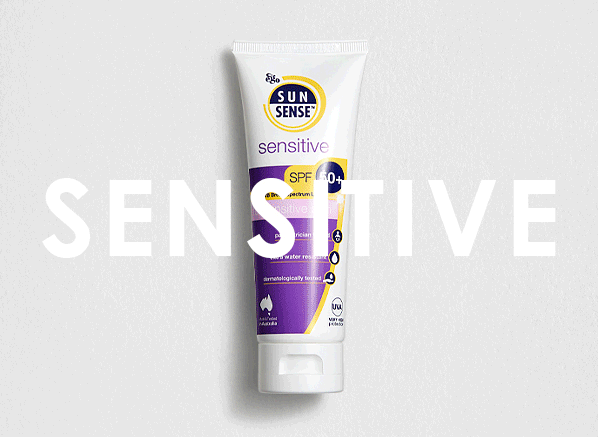

Did you know there are around 15,400 new skin cancer cases in the UK every year? That’s 42 every day! SunSense have made it their mission to reduce that figure; with over 30 years experience protecting families from the harsh Australian sun, SunSense takes sun protection very seriously – and so should we.
Formulated to meet the highest Australian standards, which are the most stringent in the world, the SunSense sunscreen collection covers all bases so everyone can stay safe with the highest SPF 50+ in Aus. But it’s not all about our friends down under, SunSense is the UK’s no.1 prescription sunscreen; loved by dermatologists, the expert formulas contain the highest quality protection against UVA and UVB rays. After chatting with the experts from the brand, I wanted to share everything you need to know, plus answers to your frequently asked questions.
1. The Family-Friendly Roll On
All parents will know the struggle of applying sticky, messy liquid sunscreens to energised children on a hot summer’s day. Well, the SunSense Kids SPF 50+ roll on is here to help!
The easy-to-apply formula is specifically designed for the delicate skin of children six months and up, but parents can also benefit from the high, broad-spectrum UVA and UVB SPF 50+ protection. And its non-greasy, lightweight texture is perfect for comfortable all-day wear, making it ideal for children who (like me) dislike sticky formulas.
It’s also enriched with vitamin B3 to replenish and improve the texture of very dry to dry skin. Plus, you can rest assured with the gentle dermatologist and paediatrician approved complex that is suitable on even the most sensitive skin. P.S. If you prefer a cream sunscreen, SunSense offers the same protection in a 125ml pump bottle.
2. The Sensitive Skin SPF
The SunSense Sensitive SPF 50+ has been created with delicate skin in mind; it’s formulated without chemical absorbers, fragrance or added colourants to minimise the possibility of irritation. The dermatologist recommended sunscreen is perfect for sensitive skin, specifically skin that’s fair or has undergone treatment for radiotherapy or skin cancer, which makes it more susceptible to sunburn.
Unlike traditional thick chemical free sunscreens, this cream melts into the skin for a lightweight natural feeling; plus, the added touch of antioxidant vitamin E moisturises the body and face for a hydrated complexion, all while protecting the cells from further damage. My favourite fact, however, is that it’s waterproof for up to four hours, so you can enjoy all water sports without the fear of sunburn.
3. The Tinted Face Cream
The SunSense Daily Face SPF 50+ will easily slip into your daily makeup routine for effortless high UVA/UVB protection. Light, soft and oil-free! The non-comedogenic formula not only protects the skin from premature ageing and sun exposure, but it also has a tinted, sheer finish for a natural glow. Who’s it for? It’s perfect for anyone who wants a light-coverage cream that also provides broad-spectrum protection; it’s a great choice for natural beach looks or country walks.
What makes this BB cream different from other tinted SPF is that it’s enriched with both vitamin B3 and E to improve the appearance of skin tone and texture.
4. The Nourishing Lip Balm
The SunSense Lip Balm SPF 50+ is my favourite product of the range! As I’m sure you’re aware, it can be difficult to find a high protection lip balm that doesn’t leave a white husk on the lips. Incoming SunSense, the easy glide-on applicator effortlessly slides over the lips, creating a transparent protective balm with up to four hours of water resistance.
No matter the season, you can protect, soothe and moisturise your chapped or dry lip contours with this vitamin-enriched formula that helps to improve elasticity for a fuller-looking lip.
Top Tip: Use the lip balm as a primer under lipstick for a natural, glossy-looking lip colour.
Your Questions Answered:
Do SunSense test on animals?
No! SunSense don’t conduct animal testing or use any third parties that engage in animal testing. All products are tested on human volunteers, using well-designed trials which are reviewed by ethical committees.
Is SunSense vegan?
SunSense is suitable for everyone! The sun creams don’t contain any animal derived ingredients; all sunscreen ingredients are synthetic or plant-derived.
Why don’t SunSense have a five star rating?
All SunSense sunscreens exceed the Australian and European Union requirements for protection from damaging UV radiation. In Australia, the home of SunSense, sun protection is taken very seriously. All SunSense products are broad-spectrum, SPF 50+ sunscreens. To be able to claim that sunscreen is ‘broad spectrum’ a product must have an SPF of 60 or higher.
The UK has the star rating system to evaluate UVA protection, and it is the only country that uses this system; this star rating is only used in Boots.
How long will SunSense sun care last?
SunSense sunscreens have a longer shelf life than other sun creams due to their unique preservation system, which has a shelf life of 3-5 years; this is indicated by the expiry date (EXP) on the packaging.
Is SunSense prescribed on the NHS?
Yes! SunSense sunscreen is the UK’s No.1 prescription sunscreen for anyone suffering with dry, itchy skin or a sun sensitivity. So, you know it can be trusted!
What is the best alternative for SunSense Ultra?
As the much loved SunSense Ultra has started to disappear from shelves, we ask ourselves what am I going to do? Don’t panic, SunSense Kids SPF 50+ is suitable for the whole family and contains the same lightweight texture and high protection benefits as SunSense Ultra.


